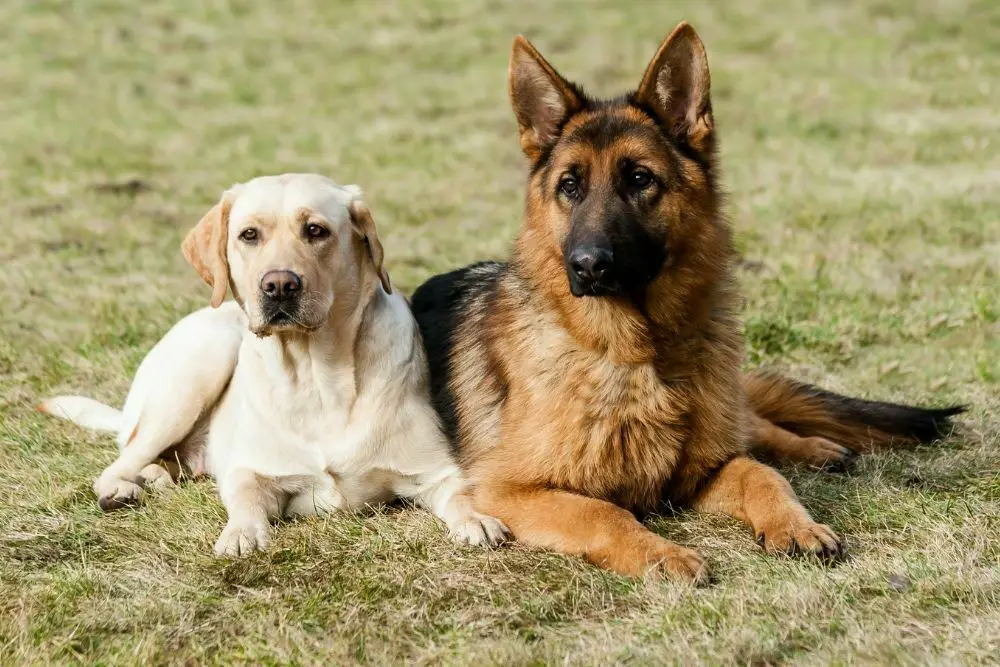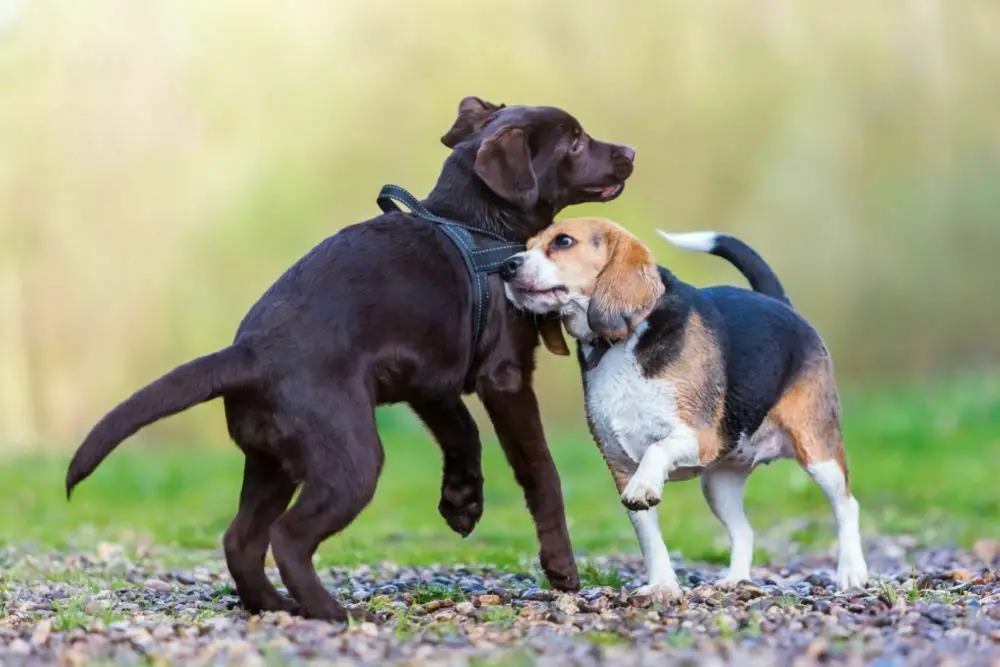When the sun puts his hat on and decides it’s time to come out and play if you’re anything like us, your thoughts automatically drift toward shorts, tee shirts, and long afternoons and days spent lounging around at the beach or by your pool.
And knowing how hot and uncomfortable you get when the temperature begins to soar, you’ll probably start thinking about how you can help your dog to cool down and how you can help make the heat a little more bearable for him.
That’s when you’ll inevitably start to think about shaving your dog and how hard, given how much he struggles and hates a bath, getting him to stand still while you’re clipping his fur will be.

You can stop worrying about how you’re going to get your dog to stand still while you shave his coat for Summer, as it’s something that you really don’t need or want to do, especially if your boy belongs to that special, select club of breeds who are double-coated.
That’s right, some dogs have a single-layer fur coat, and others have a double layer, and while it’s generally okay to take a dog with a single-layered coat to be professionally groomed when Summer arrives, the last thing you should ever do is attempt to trim a double-coated dog.
What Is A Double Coat?
A double coat is exactly what it sounds like: a fur coat composed of two layers designed to keep your dog warm in Winter and cool in Summer. It’s made up of a long outer layer known as guard hair that keeps rain and snow away from their skin and a softer, fluffy undercoat that keeps your dog warm during the colder weather.
Nature always finds clever ways to combat biological problems, and when your dog sheds more heavily during Summer and in the weeks leading up to the hotter weather, it’s his undercoat that’s actually being shed.
The outer layer of his fur, the guard hair, is thinner than the undercoat and keeps his cool during the Summer months, and until his undercoat grows back during Autumn, the guard coat helps protect your dog from the sun and stop him from getting sunburned.
Unlike single-coated dogs, whose fur keeps growing all year round and needs to be groomed and trimmed, double-coated dogs’ fur stops growing when it reaches a certain length and grows far more slowly than single-coated dogs’ fur does.
That means if you shave your double-coated dog’s fur when the days get longer and hotter, you’re effectively shaving away all of his natural protection from the sun and leaving him exposed to the most harmful of the sun’s rays. Without his guard coat in place, he could get sunburned or, even worse, end up developing skin cancer.
And It Just Keeps Worse
The news just keeps on getting worse and worse, as the relatively slow rate at which the guard hair grows means that your dog’s fur, when it does grow back, will mingle as the undercoat and the guard coat start to combine.
This won’t just reduce the protection that his fur would have offered him from the worst of the winter weather; it’ll also change the texture of his fur and could lead it to be thicker in some places than others when it does grow back.
This can, and will be problematic when the Summer rolls around again, as it could result in “hot spots” that can lead to your boy “overheating” and suffering from exactly the sort of problems you were trying to prevent by shaving him in the first place.

How Do I Know If My Dog Has A Double Coat?
There are three ways to tell if your dog has a double coat, and any one of them should be more than enough to make you put the clippers away and give up thinking about shaving your pal down for Summer, or for that matter, at any other time.
- Coat Length: Keep an eye on his coat, and if it doesn’t get long and stays at roughly the same length throughout the year, then the chances are that your dog is a double-coated breed.
- Double Coated Breeds: A lot of herding, hunting, and working dogs are double-coated. German Shepherds, Labradors, Beagles, Terriers, Collies, and Sheepdogs are all double-coated, and if you’re in any doubt, a quick Google search will tell you if your dog is double-coated.
- The Grooming Opinion: If you’re still unsure about whether or not your dog is double or single-coated and needs to have a haircut for Summer, pay a visit to your local dog groomer. As soon as they see your dog, they’ll be able to tell you if he does or doesn’t need a trim and whether he’s wearing a double or a single coat
And Finally – Giving Nature A Helping Hand
There are a number of ways that your dog can keep the edge off the heat when it gets too hot outside.
As well to shedding his undercoat, panting will help him to normalize his internal temperature and keep cool, and while he doesn’t perspire the same way that we do, he does have sweat glands in his paws, which incidentally can help to keep his feet cool while he’s walking on his concrete.
But, if you’re really worried, there are some ways that you can help to keep your dog cool when Summer arrives
- A Bottle And A Bowl: When you take him out for a walk, take a bottle of water and a small dog bowl with you. When he starts panting, find some shade and pour some water into the bowl from him to drink.
- Pond Life: If he wants to go for a swim, let him. The water will help him to cool down and take the edge off the worst of the heat.
- Reduced Exercise Time: The best place for your dog when it gets too hot outside is indoors. If you’re going to take him for a walk, try to do it in the early hours of the morning or late at night when it’s cooler, and if you do have to take him out in the afternoon when the sun is at its hottest, cut his usual walk time in half.
